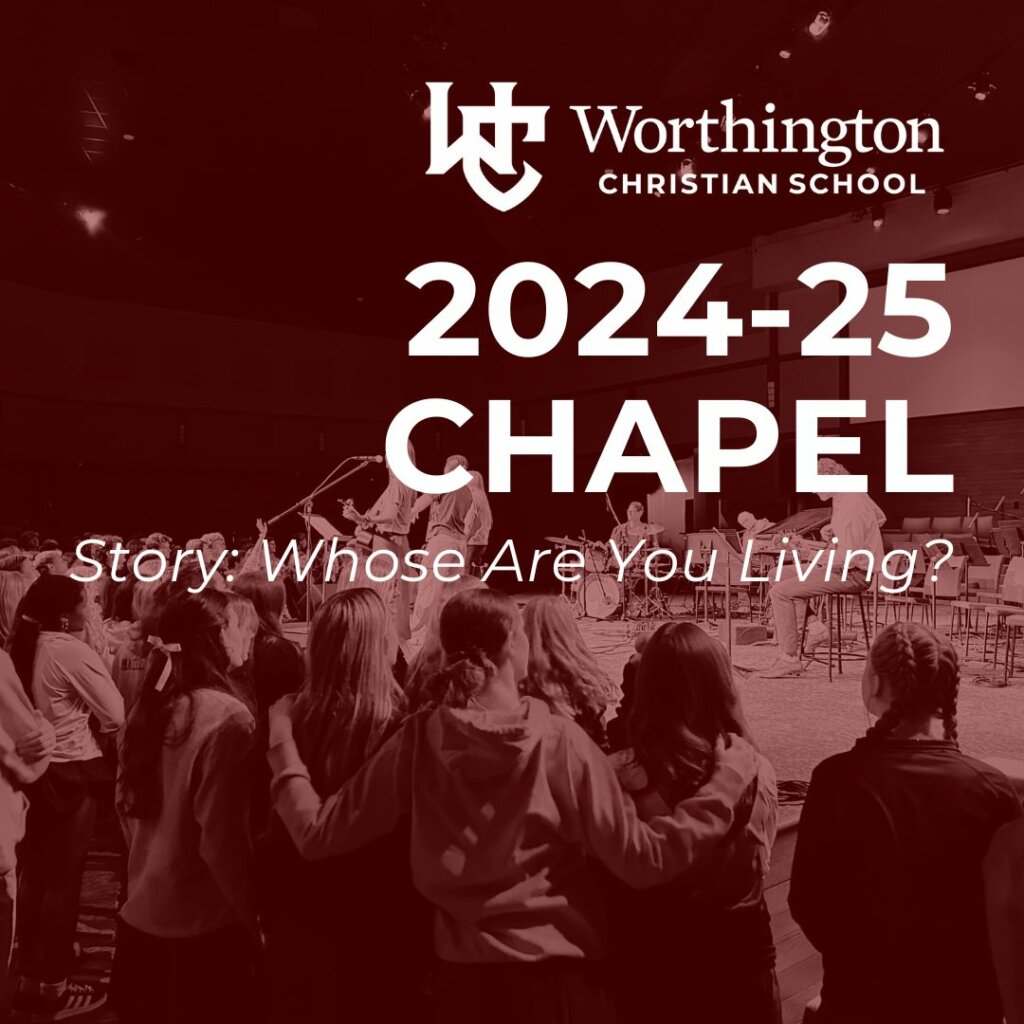Story: Whose Are You Living?

Series of chapel messages strike a chord with students and teachers.
Everyone has stories, events, and memories that make them who they are. According to Jake Ferrier, Worthington Christian’s new Director of Spiritual Formation, there are two kinds of stories: the one the world wants you to tell and the one God wants you to be.
“Every person is captivated by the story,” said Ferrier, who spent about six weeks cultivating the messages for a K-12 chapel series: “Story: Whose Are You Living?” “We’re surrounded by stories all the time, whether it is media, books, or movies. But we’re even more captivated by the idea of our own story.
“The world tells us the most beautiful life you can lead is the one where you write your own story. That reality is contrary to the Bible. The Bible instead talks about God desiring to write the story for your life because He created you, loves you, and desires what is truly best for you.”
Senior Ethan Blank (WC ’25) has been able to pull different things from the different chapels and see how they relate to his life.
“The talks have centered around who I am in God and where I see myself in my relationship with the Lord,” Blank said. “There are three categories I can put myself into: outside of the circle, one foot in and one foot out, and being fully committed. The series has been about further progressing our relationship with the Lord.”
Ferrier believes one of the areas many teens struggle with is making sense of their lives compared to the lives they see on social media. According to one study, Generation Z (people born between the late 1990s and the early 2000s) average eight hours of screen time daily. Much of that stint is spent on social media such as X (formerly known as Twitter), TikTok, YouTube, Facebook, Instagram, and Snapchat.
Ferrier examined how that generation is using those eight hours. The students he’s observed tend to spend less time posting about their life events and more time watching other people’s stories.
“We’re bombarded with the push from social media to try to identify with other’s stories instead of being able to independently identify what God wants for us,” he said.
At the Lower School, Ferrier is focusing on helping students understand they are a child of God, and helping them understand God’s desire to write their story.
Ferrier started collaborating with administrators on the series in June. After delivering his first message on Aug. 21, Ferrier said the messages seemed to have struck a chord with the Upper School students.
One student told him, “We appreciate this direction.” Another stated, “We’re thrilled we got off to such a good start with a key focus on our identity, who our authority is, and why that story is beautiful.”
Students aren’t the only ones who latched onto the message. Shortly after the first chapel, Ferrier said he received six to eight emails from colleagues about how they were enjoying this year’s focus.
“I’ve been amazed by the number of students -particularly ones who don’t know me well – who said, ‘Mr. Ferrier, we appreciated what you shared,’” he said. “It’s been overwhelming in a very humbling way. I want to emphasize this is what God is doing.”
